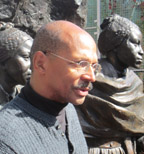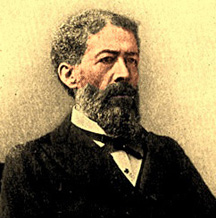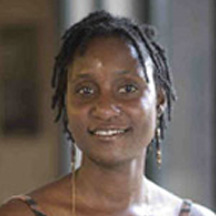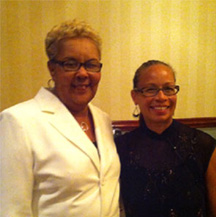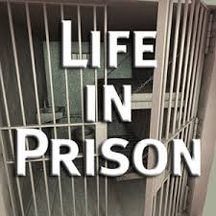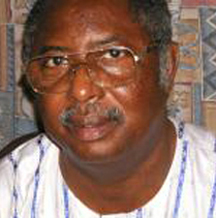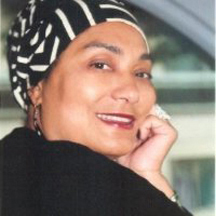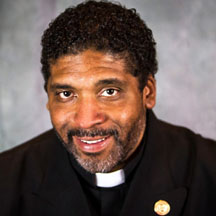This year, the people of Washington, D.C. celebrated the 155th anniversary of the end of slavery in the capital of the United States. The success of the only instance of compensated emancipation in American history drew great praise from London, Paris, and Rome at the time. On that day, April 16, 1862, the city became the last capital of an advanced nation to banish auction blocks, slave pens, coffles, and fetters from its avenues and streets.
This was the same year that public education was finally provided by the city to children of African descent, although in separate schools. These steps forward, however, seemed far too much and way too quick for most Whites in the city. The city council issued a resolution against such changes as these, warning that the city would become an "asylum" for freedom seeking Blacks which, after all, were an "undesirable" population in any community.
A group of "4th Ward Democrats" also issued a resolution affirming their "uncompromising opposition" to elevate "indolent and worthless" Negroes by force of legislation to a position in this city for which they are unprepared and which would result in the injury and oppression of the White race. The group also expressed its unstinting resistance to the effort afoot "to impose upon this city the odious task of schooling Negro children."
Statements such as those made it all too apparent that if freedom and basic schooling for Blacks were begrudged by most Whites, then the vote must be obtained to secure even the most basic rights. However sweet the taste of freedom, it was far from a full meal without the elective franchise.
As early as June 1864, a delegation of Black Methodists presented a petition to Congress with 2,500 signatures requesting the vote for Black men (women could not vote then). The following year, a bill was introduced in Congress in favor of a municipal vote for Black men in the city. Black leaders and organizations across the country realized that if the African American vote could be granted at the national capital it could cause positive political repercussions throughout the nation.
The current outlook for ballot seeking Black folk was bleak. Only half a dozen states permitted some Blacks to vote. The Washington Evening Star newspaper claimed that: "Of the New England States, Connecticut is the only one that refuses the ballot to Colored men. Maine, New Hampshire, and Vermont make no distinction whatever in respect to suffrage, but Massachusetts and Rhode Island do. The laws of Massachusetts require the voter to be able to read the Constitution of the United States in the English language and to write his name. Rhode Island likewise indulges in a little Know Nothingism (a mid-20th century political attitude characterized by anti-intellectualism, exaggerated patriotism, and fear of foreign subversive influences ) in its suffrage law by declaring that every native male citizen may vote.
In New York Negroes with certain qualifications are allowed to vote; that is such as are worth two hundred and fifty dollars, and have been in the state three years. In Wisconsin, Negroes are allowed to vote by virtue of a decision by the Supreme Court of that State upon a technicality. In Ohio the greater part of the Negroes vote, although the law gives the ballot only to those who have more than half White blood."
Facing such a desolate suffrage landscape, African American political leaders dispatched noted Black men like Frederick Douglass (then living in Rochester, New York) and John M. Langston to the District of Columbia to assist in a major pro-Black vote offensive.
Nevertheless, there were powerful forces arrayed against the Black ballot in such a visible location. Many of these enemies believed that the vote was a step toward their worst nightmare: social equality. One observer of the time noted that: "Outside of a few citizens and the Colored race, the people of the District did not favor this change." One of Douglass' first talks on the subject was delayed when a group of influential White Republican women suddenly found that no lecture hall would rent to them because of their Colored speaker. His speech was given at the First Presbyterian Church. Many Whites were also repulsed at the looming prospect of having to sit on juries with Black men.
Forgotten Milestone | JET Returns | Gambia Seeks Killer
Having trouble viewing this email? Click here
Having trouble viewing this email? Click here
May 25 – June 7, 2017
On The Dock This Issue:

Forgotten Milestone: The 150th Anniversary of the First Black Vote in D.C.
The D.C. council issued a resolution against such changes as these, warning that the city would become an "asylum" for freedom seeking Blacks which, after all, were an "undesirable" population in any community.
The D.C. council issued a resolution against such changes as these, warning that the city would become an "asylum" for freedom seeking Blacks which, after all, were an "undesirable" population in any community.
Highly Engaged Discussion: Post Slavery African Immigration
With audience members from as far away as Wisconsin and Baltimore, participants peppered the George Washington University professor with questions.
With audience members from as far away as Wisconsin and Baltimore, participants peppered the George Washington University professor with questions.
Langston Hughes Family Traveling Museum
Whether to relinquish family artifacts to the new museum in Washington has been an issue that many have had to ponder including Langston Hughes’ descendants.
Whether to relinquish family artifacts to the new museum in Washington has been an issue that many have had to ponder including Langston Hughes’ descendants.
JET Returns
Perhaps JET's return will come in November, which founder John H. Johnson called his "lucky month."
Perhaps JET's return will come in November, which founder John H. Johnson called his "lucky month."
New Report Finds Record Number of People Serving Life in U.S. Prisons
1 out of 5 African Americans in prison is serving life.
1 out of 5 African Americans in prison is serving life.
Gambia Seeks Justice for Deyda Hydara
Wayne Young of Washington, DC and Beverly Berndt of Bowie, Maryland met Hydara while traveling in Gambia.
Wayne Young of Washington, DC and Beverly Berndt of Bowie, Maryland met Hydara while traveling in Gambia.
The city's African American Civil War regiment had barely returned from fighting in the fall of 1865 when the city council issued a statement reminding the veterans along with the rest of the Black community that "the White man, being the superior race, must . . . rule the Black . . . If it took the ancient Briton a thousand years to emerge from his only half-civilized condition . . . to reach the point to qualify him for the exercise of the right, how long would it reasonably take the Black man, who but two hundred years ago was brought from Africa . . . “”
Black leaders and organizations across the country realized that if the African American vote could be granted at the national capital it could cause positive political repercussions throughout the nation.
Suffrage petitions submitted to the city council were rejected. Vicious lies were spread questioning the fitness and service record of the Black veterans and about the financial stability of the city's African Americans in terms of the taxes they paid and property owned. In December, 1865, the city council and the mayor called for a special referendum on the Black vote by the White male citizens of Georgetown and the District of Columbia.
In the District, the vote was 6,556 against and 35 for. In Georgetown, 813 against; only one for Black suffrage. In sum, over 7,300 votes against and only 36 for it.
Douglass caustically remarked that these White voters "would at any time during the great war for union and liberty, have preferred [Jefferson} Davis to Lincoln, Lee to Grant." President Andrew Johnson employed these results several times over the next two years to fend off attempts at Black suffrage, even going so far as to predict a race war if African Americans in the city got the vote. In another effort to sink the idea, a measure connecting the White female suffrage with Black male suffrage was unsuccessfully introduced.
Activist, pro-vote Republicans in Congress and the Senate were able to leverage a party victory the following year to introduce more Black suffrage bills and finally pass one over Johnson's veto. Universal manhood suffrage had fitfully but finally arrived in the nation's capital. Despite predictions of chaos and doom, the registrations of Black voters as well as the votes themselves went off without a hitch. Keenly aware of the import of the moment, African American men were enthusiastic but restrained, patient, and civil.
Blacks in Georgetown voted first in February 1867, their votes helping to make the difference. District Blacks voted in June of that year also without incident. (The 15th Amendment to the Constitution granting African American men the right to vote was not ratified until February 3, 1870.)
Two years earlier, Senator Charles Sumner had expressed the importance of the Black vote for the whole country: "Without their votes we cannot establish stable government in the Rebel States. Their votes are as necessary as their muskets; of this I am satisfied. Without them, the old enemy will reappear, and under the forms of law take possession of the governments, choose magistrates and officers, and in alliance with the Northern Democracy, put us in peril again, postpone the day of tranquility, and menace the national credit by assailing the national debt." What had happened in the nation's capital a century and a half ago unfailingly demonstrated the willingness and ability of men of African descent to properly use the elective franchise, if given the opportunity; it was as Senator Sumner had called it "an example for all the land."
The new District voting law paved the way for the national enfranchisement of African American men three years later. In 1870, the 15th Amendment to the Constitution declared that the right to vote shall not be denied "on account of race, color, or previous condition of servitude."
And yet the sesquicentennial of this most momentous event has passed unknown, untaught, and unhonored by the majority of the city's citizens.
Black leaders and organizations across the country realized that if the African American vote could be granted at the national capital it could cause positive political repercussions throughout the nation.
Suffrage petitions submitted to the city council were rejected. Vicious lies were spread questioning the fitness and service record of the Black veterans and about the financial stability of the city's African Americans in terms of the taxes they paid and property owned. In December, 1865, the city council and the mayor called for a special referendum on the Black vote by the White male citizens of Georgetown and the District of Columbia.
In the District, the vote was 6,556 against and 35 for. In Georgetown, 813 against; only one for Black suffrage. In sum, over 7,300 votes against and only 36 for it.
Douglass caustically remarked that these White voters "would at any time during the great war for union and liberty, have preferred [Jefferson} Davis to Lincoln, Lee to Grant." President Andrew Johnson employed these results several times over the next two years to fend off attempts at Black suffrage, even going so far as to predict a race war if African Americans in the city got the vote. In another effort to sink the idea, a measure connecting the White female suffrage with Black male suffrage was unsuccessfully introduced.
Activist, pro-vote Republicans in Congress and the Senate were able to leverage a party victory the following year to introduce more Black suffrage bills and finally pass one over Johnson's veto. Universal manhood suffrage had fitfully but finally arrived in the nation's capital. Despite predictions of chaos and doom, the registrations of Black voters as well as the votes themselves went off without a hitch. Keenly aware of the import of the moment, African American men were enthusiastic but restrained, patient, and civil.
Blacks in Georgetown voted first in February 1867, their votes helping to make the difference. District Blacks voted in June of that year also without incident. (The 15th Amendment to the Constitution granting African American men the right to vote was not ratified until February 3, 1870.)
Two years earlier, Senator Charles Sumner had expressed the importance of the Black vote for the whole country: "Without their votes we cannot establish stable government in the Rebel States. Their votes are as necessary as their muskets; of this I am satisfied. Without them, the old enemy will reappear, and under the forms of law take possession of the governments, choose magistrates and officers, and in alliance with the Northern Democracy, put us in peril again, postpone the day of tranquility, and menace the national credit by assailing the national debt." What had happened in the nation's capital a century and a half ago unfailingly demonstrated the willingness and ability of men of African descent to properly use the elective franchise, if given the opportunity; it was as Senator Sumner had called it "an example for all the land."
The new District voting law paved the way for the national enfranchisement of African American men three years later. In 1870, the 15th Amendment to the Constitution declared that the right to vote shall not be denied "on account of race, color, or previous condition of servitude."
And yet the sesquicentennial of this most momentous event has passed unknown, untaught, and unhonored by the majority of the city's citizens.
Dr. Nemata Blyden shared some of her research findings on Africans who immigrated to the United States after slavery during A Port Of Harlem Spring at the Alexandria Black History Museum. She shared those stories through numbers, but mainly by telling the history of interesting men and their accomplishments. “Women immigrated too,” says the historian-storyteller, but they have been much harder to uncover.
With audience members from as far away as Wisconsin and Baltimore, participants peppered the George Washington University professor with questions about George Robbins, who was a relative of a family Blyden had known in her earlier years. However, she was not aware of his Sierra Leoneon heritage until her adulthood. “He was brought here by missionaries,” she said. Ghanaian James Aggrey had successes on both sides of the Atlantic, though a pan-Africanist hero to many, “he was palatable to White America,” she continued pointing to the complexity of seeing people as being one dimensional.
With audience members from as far away as Wisconsin and Baltimore, participants peppered the George Washington University professor with questions about George Robbins, who was a relative of a family Blyden had known in her earlier years. However, she was not aware of his Sierra Leoneon heritage until her adulthood. “He was brought here by missionaries,” she said. Ghanaian James Aggrey had successes on both sides of the Atlantic, though a pan-Africanist hero to many, “he was palatable to White America,” she continued pointing to the complexity of seeing people as being one dimensional.
Christian missionary Orishatukeh Faduma was born William Davids, but changed his name during an Africanization period in the early 1900s. Hollywood was familiar with actor Prince Mudupe and before the Dance Theater of Harlem there was the Shogola Oluba African Dance Troupe, founded by Austin Dafora Horton. “Esther Rolle was in his troupe,” she explained. All three men were born in Sierra Leone like Blyden’s father. Blyden's mother was born in The States.
She also spoke of African-American with deep North American roots Booker T. Washington, though he is seldom remembered as someone interested in the plight of Africans in the Diaspora. The founder of Tuskegee University, who was also “famously” palatable to White America, opposed the 1915 Alien Bill that would have limited African immigration. “Such a law is unnecessary, unjust, and unreasonable,” he wrote while also expressing concern for Africans at home and abroad. Blyden pointed out that his work in Togo is documented in Alabama in Africa - - again pointing out the dangers of seeing people as being one dimensional.
She also spoke of African-American with deep North American roots Booker T. Washington, though he is seldom remembered as someone interested in the plight of Africans in the Diaspora. The founder of Tuskegee University, who was also “famously” palatable to White America, opposed the 1915 Alien Bill that would have limited African immigration. “Such a law is unnecessary, unjust, and unreasonable,” he wrote while also expressing concern for Africans at home and abroad. Blyden pointed out that his work in Togo is documented in Alabama in Africa - - again pointing out the dangers of seeing people as being one dimensional.
Port Of Harlem subscriber Marjol Collet’s pride in Langston Hughes’ contributions to American culture is the center of the Langston Hughes Family Museum. Much of her attraction to Hughes is that Collet’s great-grandmother was Hughes’ paternal aunt Margaret Hughes Miller.
Miller’s brother, James Nathaniel Hughes, Hughes’ father, was born in Kentucky or southern Indiana (Kentuckiana). As branches of much of the family moved about the Midwest, James Nathaniel settled in Mexico, never to return to the United States. Collet’s branch landed in Gary, Indiana, in northern Indiana, as the famous poet Hughes landed in Harlem.
Miller’s brother, James Nathaniel Hughes, Hughes’ father, was born in Kentucky or southern Indiana (Kentuckiana). As branches of much of the family moved about the Midwest, James Nathaniel settled in Mexico, never to return to the United States. Collet’s branch landed in Gary, Indiana, in northern Indiana, as the famous poet Hughes landed in Harlem.
The family collection includes photographs of the most famous Hughes in Paris in 1938 and visiting cousins in Gary in 1961. Hughes’ had his ashes interred beneath a floor medallion in the middle of the foyer in the Schomburg Center for Research in Black Culture in Harlem.
Whether to relinquish family artifacts to the new museum in Washington has been an issue that many have had to ponder including Hughes’ descendants. "I have thought about donating my family artifacts to the National Museum of African American History & Culture in DC. However, I still tour with the artifacts and consider donating the artifacts to the museum upon my expiration,” says Collet.
Whether to relinquish family artifacts to the new museum in Washington has been an issue that many have had to ponder including Hughes’ descendants. "I have thought about donating my family artifacts to the National Museum of African American History & Culture in DC. However, I still tour with the artifacts and consider donating the artifacts to the museum upon my expiration,” says Collet.
Target Market News reports that the Johnson Publication Company (JPC) may be turning the corner on its challenges is the announcement that Jet magazine, once the largest circulation Black-oriented magazine ever printed, will return to publication as a newsstand-only quarterly targeting a millennial readership. After suspending print editions in 2014, Linda Johnson Rice said it will re-appear in the fall of this year.
Perhaps Jet's return will come in November, which founder John H. Johnson called his "lucky month" because his very first magazine, Negro Digest, debuted in November of 1942. Every one of the 11 magazines JPC would introduce over the past 75 years premiered in November as well.
A new report by The Sentencing Project, Still Life: America’s Increasing Use of Life and Long-Term Sentences, finds a record 206,268 people serving life with parole, life without parole, or virtual life sentences in 2016—one of every seven people in prison. A “virtual life” sentence is a sentence of 50 years or more.
Highlights of the report include:
- 1 out of 5 African Americans in prison is serving life
- Nearly half (48.3%) of life and virtual life-sentenced individuals are African American
- Nearly 12,000 people are serving life for crimes committed as teens
- Over 17,000 people are serving life for nonviolent crimes
- In Indiana, Louisiana, and Montana, more than 11 percent of the prison population is serving a de facto life sentence
Reuters reports that a Gambian court has issued international arrest warrants for two ex-soldiers, former Colonel Kawsu Camara and Major Sanna Manjang, suspected of murdering veteran reporter Deyda Hydara. Hydara was a critic of the government and co-owner of the independent newspaper The Point. He was shot dead in his car in 2004 and the murder was never explained.
“I meet Hydara while on one of my first trips to Gambia and was looking forward to getting to know him better,” says Port Of Harlem publisher Wayne Young. “His murder left a chilling over my feelings about this otherwise very peaceful and low crime nation.”
“I meet Hydara while on one of my first trips to Gambia and was looking forward to getting to know him better,” says Port Of Harlem publisher Wayne Young. “His murder left a chilling over my feelings about this otherwise very peaceful and low crime nation.”
Beverly Berndt, of Bowie, Maryland, would meet Hydara each year in Gambia while traveling on behalf of the Gambia Project of New Hope Academy. “He was a journalist who was very committed to finding the truth, freedom of speech, and freedom of the press. He told me that he knew that he was risking his life by being so outspoken against former President Yahya Jammeh. May he rest in peace knowing that his death was not in vain.”
The murder took place during the rule of Jammeh, who fled into exile in January after 22 years of power marred by alleged human rights abuses. The warrants are part of attempts by authorities under new President Adama Barrow to redress abuses under Jammeh, who lost an election in December but initially refused to step down.
Police spokesman Foday Conta said the two suspects were not currently in Gambia, adding: "The warrant is to order their arrest anywhere they may be. Jammeh now lives in exile in Equatorial Guinea. One of his ex-officials was arrested in Senegal earlier this year.
The murder took place during the rule of Jammeh, who fled into exile in January after 22 years of power marred by alleged human rights abuses. The warrants are part of attempts by authorities under new President Adama Barrow to redress abuses under Jammeh, who lost an election in December but initially refused to step down.
Police spokesman Foday Conta said the two suspects were not currently in Gambia, adding: "The warrant is to order their arrest anywhere they may be. Jammeh now lives in exile in Equatorial Guinea. One of his ex-officials was arrested in Senegal earlier this year.

Washington
Greater Mt. Nebo AME Church Presents Music at the Mount
outdoor concert, bring your own chairs
1001 Old Mitchellville Road
Bowie, Maryland
Sat, May 27, 4p-6p, $15, $20 at door
African-American Collective Theater
25th Anniversary Celebration
Sun, May 28, 3p, 6p, and 9p. $
Black History Art and Music Expo
The Arc
1901 Mississippi Ave
Sun, Jun 4, 3p-8p, free
Underground Railroad Tour
Round Trip Motor Coach, 5-night hotel stay
(Days Inn, NY & Sheraton Canada)
Champion Services Travel
301-686-0970
Sun, Jun 11- Fri, Jun 16, standard $1,095
Baltimore
Old School Throwback Family And Fun Day
Harlem Square Park
1500 Edmondson Ave
Sun, May 28, free, 11-6p, free
Frederick, MD
Laugh til it Hurts
Frederick County Fairgrounds
Sat, Jun 3, 8p, $
Greater Mt. Nebo AME Church Presents Music at the Mount
outdoor concert, bring your own chairs
1001 Old Mitchellville Road
Bowie, Maryland
Sat, May 27, 4p-6p, $15, $20 at door
African-American Collective Theater
25th Anniversary Celebration
Sun, May 28, 3p, 6p, and 9p. $
Black History Art and Music Expo
The Arc
1901 Mississippi Ave
Sun, Jun 4, 3p-8p, free
Underground Railroad Tour
Round Trip Motor Coach, 5-night hotel stay
(Days Inn, NY & Sheraton Canada)
Champion Services Travel
301-686-0970
Sun, Jun 11- Fri, Jun 16, standard $1,095
Baltimore
Old School Throwback Family And Fun Day
Harlem Square Park
1500 Edmondson Ave
Sun, May 28, free, 11-6p, free
Frederick, MD
Laugh til it Hurts
Frederick County Fairgrounds
Sat, Jun 3, 8p, $
Jacksonville, FL
Downtown Art Walk
Wed, Jun 7, 5p- 9p, free
New York
Kill Move Paradise
National Black Theater
2031 National Black Theatre Way
Harlem, NY
Previews: May 31-Jun 2
Wed-Fri, 7:30p
Production Run: Jun 3-Jun 25
Thu–Fri,7:30p; Sat, 2p & 7:30p; Sun: 4p, $20
TV
National Urban League Presents:
State of Black America Town Hall
TV One
Wed, May 31, 8p/7p Central, free
Coming
Fatherless Daughter Reconciliation
Jonetta Rose Barras
Alexandria Black History Museum
902 Wythe Street
Alexandria>
Sat, Jun 17, 11a-1p, $5
Downtown Art Walk
Wed, Jun 7, 5p- 9p, free
New York
Kill Move Paradise
National Black Theater
2031 National Black Theatre Way
Harlem, NY
Previews: May 31-Jun 2
Wed-Fri, 7:30p
Production Run: Jun 3-Jun 25
Thu–Fri,7:30p; Sat, 2p & 7:30p; Sun: 4p, $20
TV
National Urban League Presents:
State of Black America Town Hall
TV One
Wed, May 31, 8p/7p Central, free
Coming
Fatherless Daughter Reconciliation
Jonetta Rose Barras
Alexandria Black History Museum
902 Wythe Street
Alexandria>
Sat, Jun 17, 11a-1p, $5
Advertisers | Contact Us | Events | Links | Media Kit | Our Company | Payments Pier
Press Room | Print Cover Stories Archives | Electronic Issues and Talk Radio Archives | Writer's Guidelines






